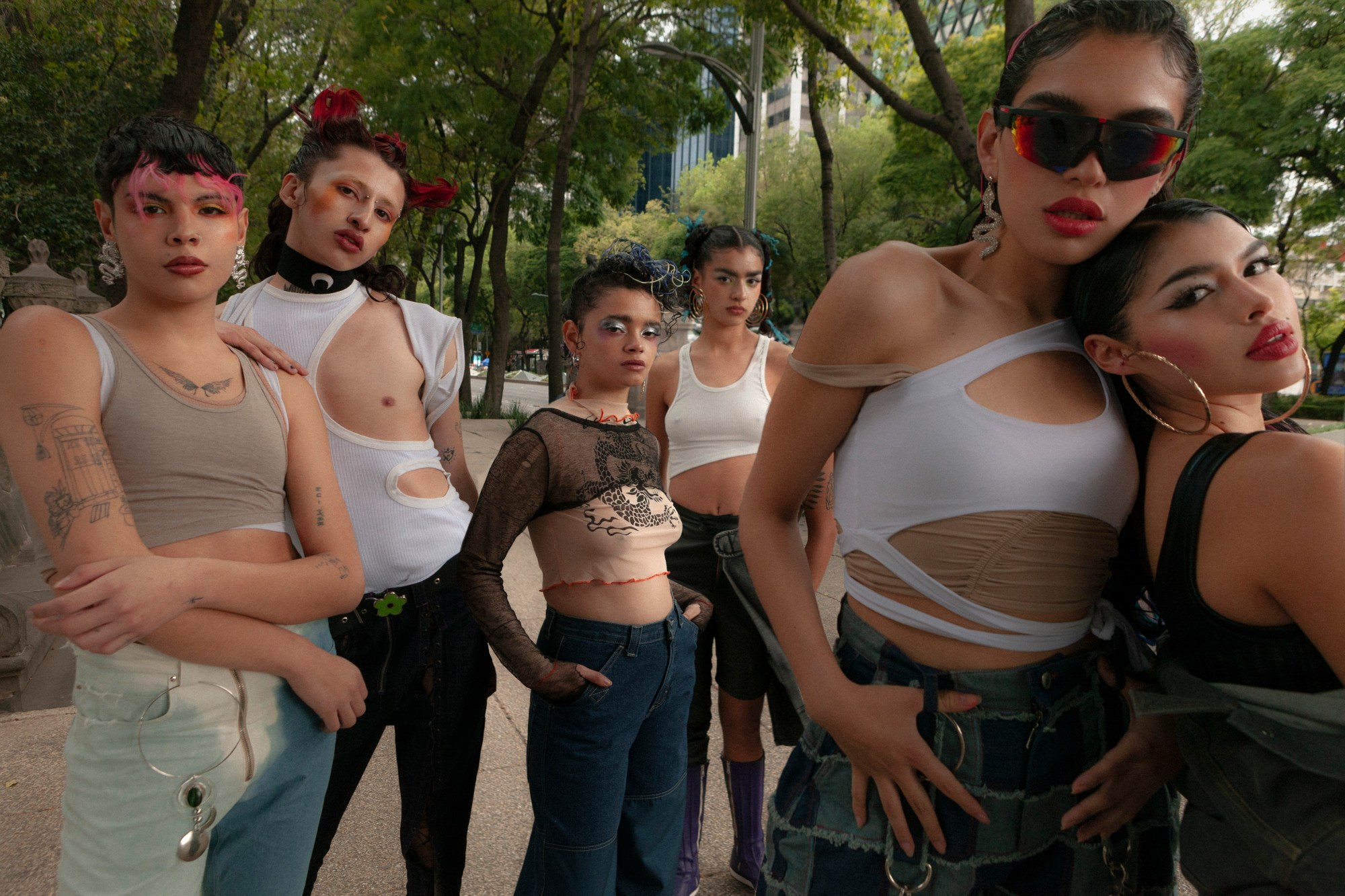Before the word omicron entered our daily vocabulary and when the world was opening up to travel, more and more people were visiting Mexico City. It’s become known as a hub for young artists and creatives. While some visitors were looking for a sense of relief or to explore Mexico City’s many historical sites, others hoped to get to know the underground creative scene that extends to art, fashion, music and culture.
Overall, Mexico City allows for more diverse culture and identities to thrive, but not without the obstacles and more traditional values that come with every Latin American city. Here, Mexican photographer Alejandro Cabezut photographed the city’s creatives to show how vital it is to have a chosen family that encourages you to keep going when you’re stranded in the chaos of CDMX. We talked with Maria, Nello, Angel, Ana, Julie and Muriel about their passions, queer visibility and the importance of having safe spaces to share your experiences and help others while doing it.
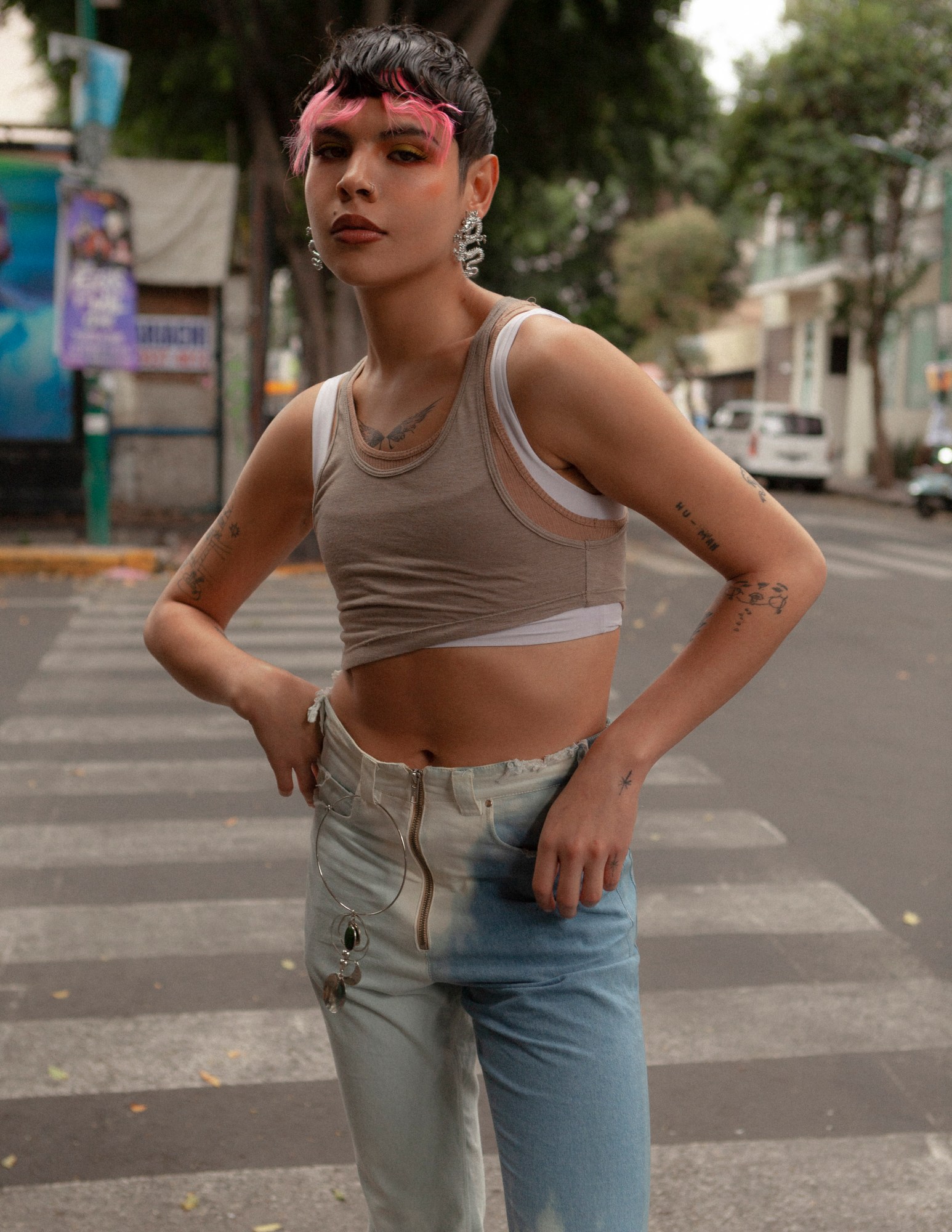

“I’m Muriel, better known as Melón, currently dedicating myself to marketing in creative spaces and enjoy modelling on occasion. I’m 22 and an Aries. I’m a trans femme living in downtown Mexico City, near la Languilla, and not the biggest fan of yellow apples.”
Describe Mexico City for someone who’s never been here before…
Mexico City is a nice place for people living in the Roma/Condesa area, but is not so easy if you don’t come from privilege — it’s a hostile place for the dissidents. The reality of Mexico City is so much more than what happens in those neighborhoods.
What has changed for you having a chosen family like the one you have now?
I found in my great friends a safe place that allows me to identify myself with bliss and live to reject gender impositions. Developing relationships with people from a place of understanding and listening is something that takes time to learn and relearn, but for me, that’s the cool thing about these ties.
Why is queer visibility so important here in Mexico City?
I think that ‘queer’ as an imported concept has weight in the city, but in very specific scenes with a certain sense of class, race and gender that I personally don’t identify with. I prefer to recognise myself in diversity and nonconformity, because [the concept of] ‘queer’ is meddled by capitalism, thinking diversity as something economically functional.
What did you do this year that won’t repeat in 2022?
Idealise people.
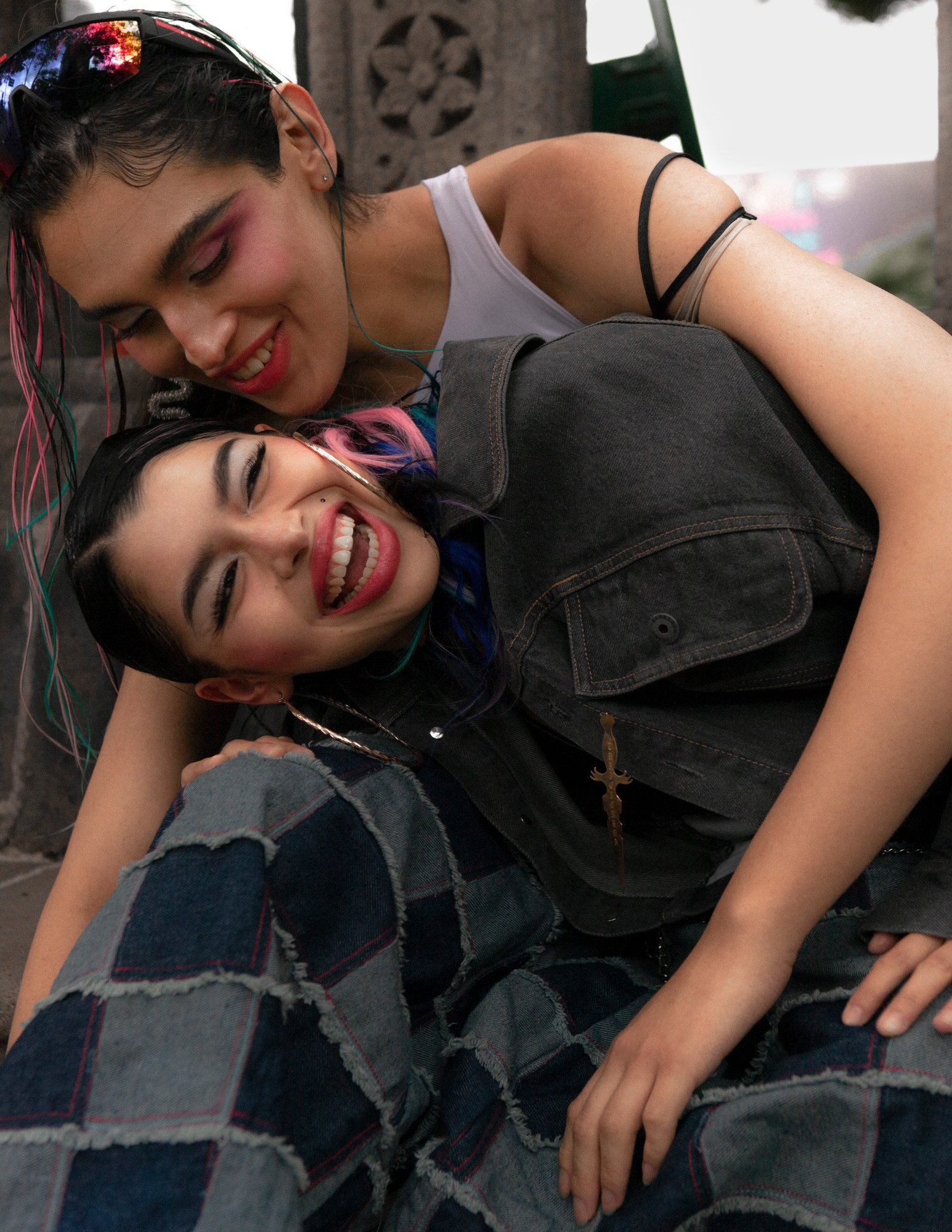
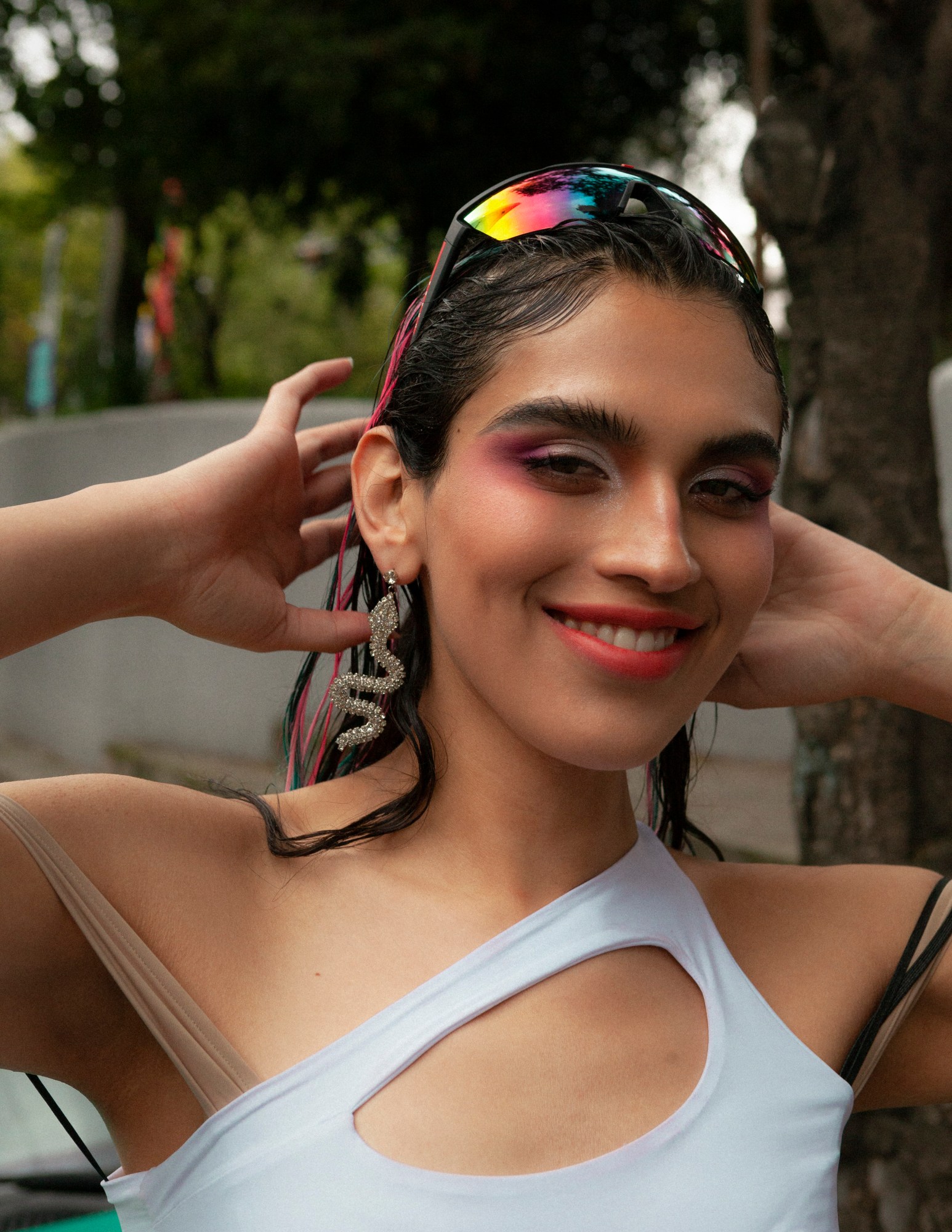
“My name is Julie Fuentes. I’m 22 and an Aries. I was born in Mexico City and still live here. Currently working as a model, and also breaking into nightlife and DJing, I studied dance for two years and my dream in life is that everyone around the world can know me and see my art.”
What is your experience like of exploring your identity in Mexico City?
Comparing my experience with the likes of my friends that live in other cities in Mexico, I think mine has not been so bad. As a model, it’s been difficult to break into the industry and maintain there, but everything has worked out organically.
What has changed for you having a chosen family like the one you have now?
Living my identity in this city, legally and emotionally speaking, has been easier thanks to the support of my friends and family. My best friend has been with me since we were small, and she has supported me unconditionally through everything — my transition, my modelling career.
For people looking for this kind of support, what kind of resources would you suggest?
I’ve made a lot of friendships from social media, that I also consider family now. They are not physically beside me, but have been present and supporting me from a distance.
Why is queer visibility so important in Mexico City?
The fact that you can make yourself visible and still make big things in the world that other people can relate to is so gratifying. Just by existing, enduring and getting out in the street, we are already doing something of importance.
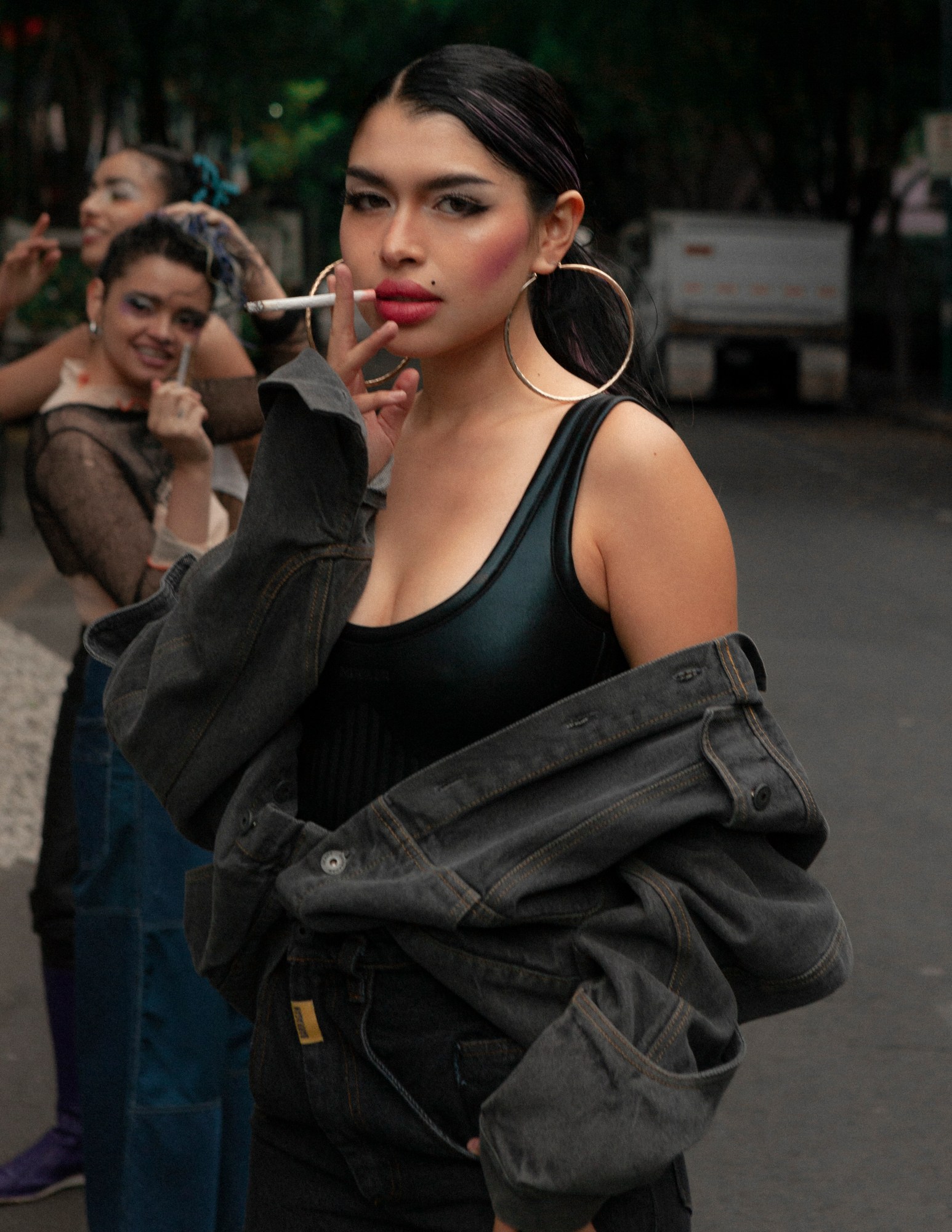
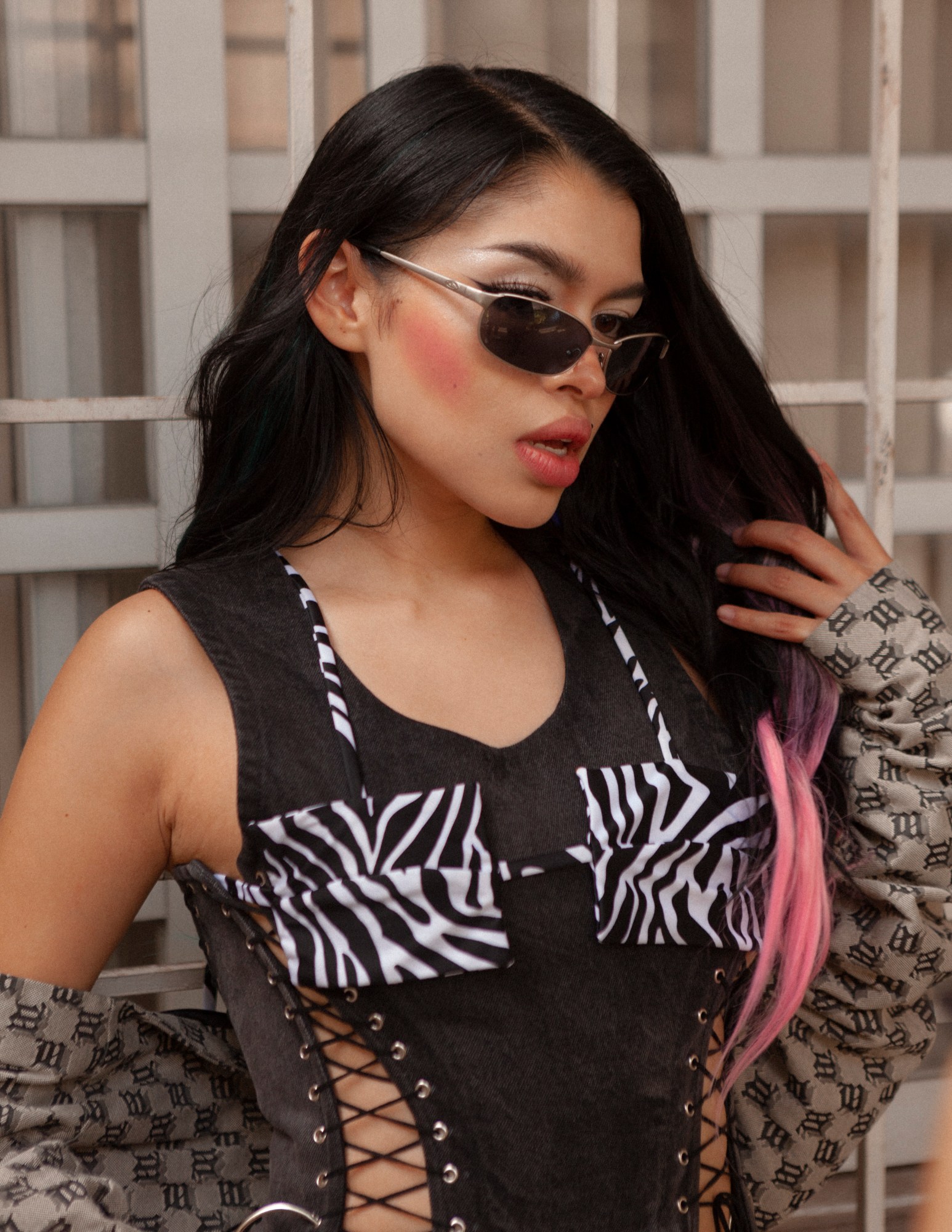
“I’m Ana Karen, and I’m 22 years old. I love to dance, go to the theatre, watch movies, listen to music with friends and snuggle with my mom and puppies. I’ve always considered myself an adventurous person and try to never turn down the opportunity to do something new.
Describe Mexico City for someone who’s never been here before…
Mexico City never sleeps, shines too bright and embraces whoever decides to visit it.
What is your experience like of exploring your identity here?
Honestly, it has been painful and a little bit difficult to develop my identity as a person here; to recognise and accept myself is not as easy as I thought it would be.
What has changed for you having a chosen family like the one you have now?
Having a chosen family has changed everything. I can be who I really am and I know I’ll never be judged and that I will have someone for me, no matter what. They are people who have really shown me their love and support, we are free people.
What’s your constant struggle?
To be able to enjoy our sexual beings and our body. I am the owner of my body and my sexuality and I want to enjoy them as I see fit, but always responsibly.
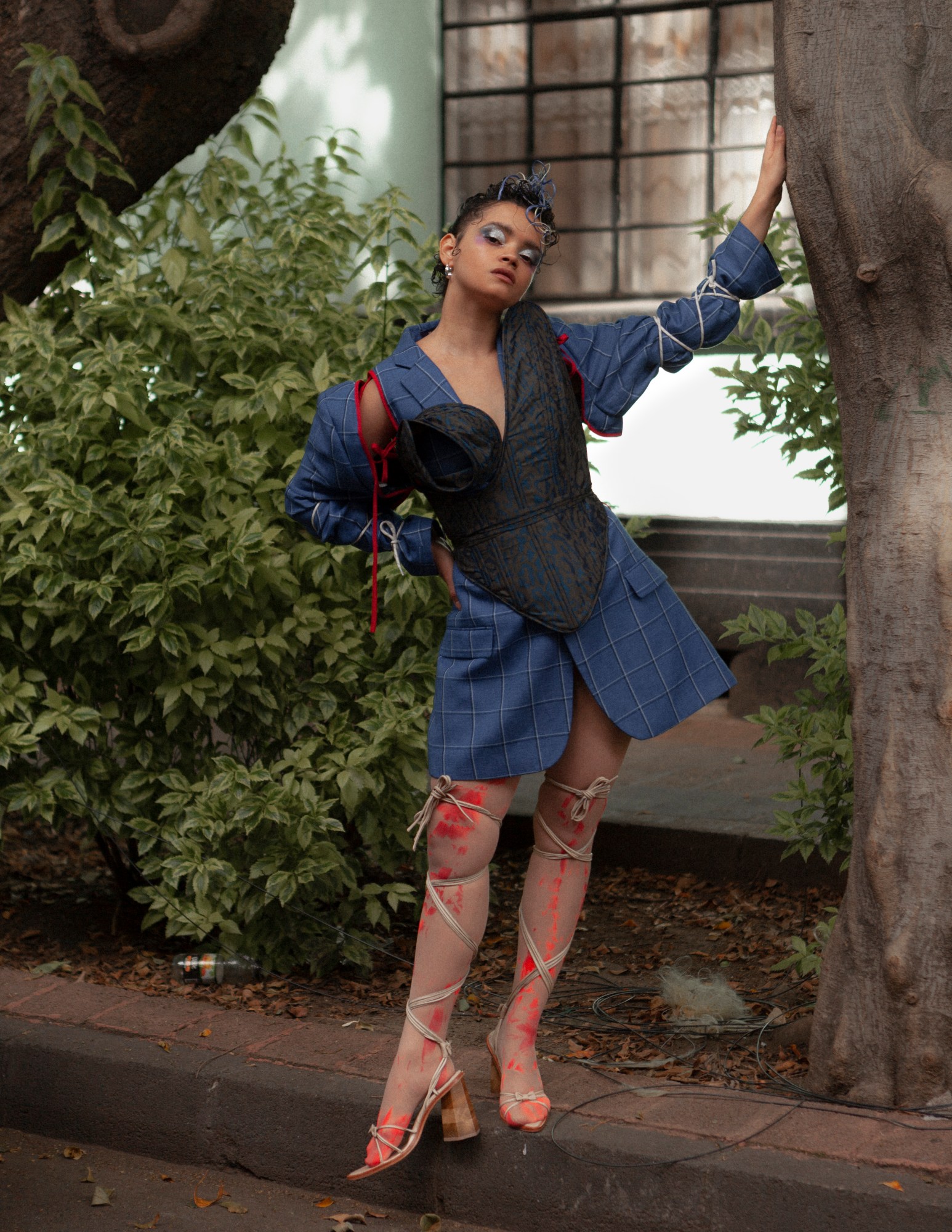
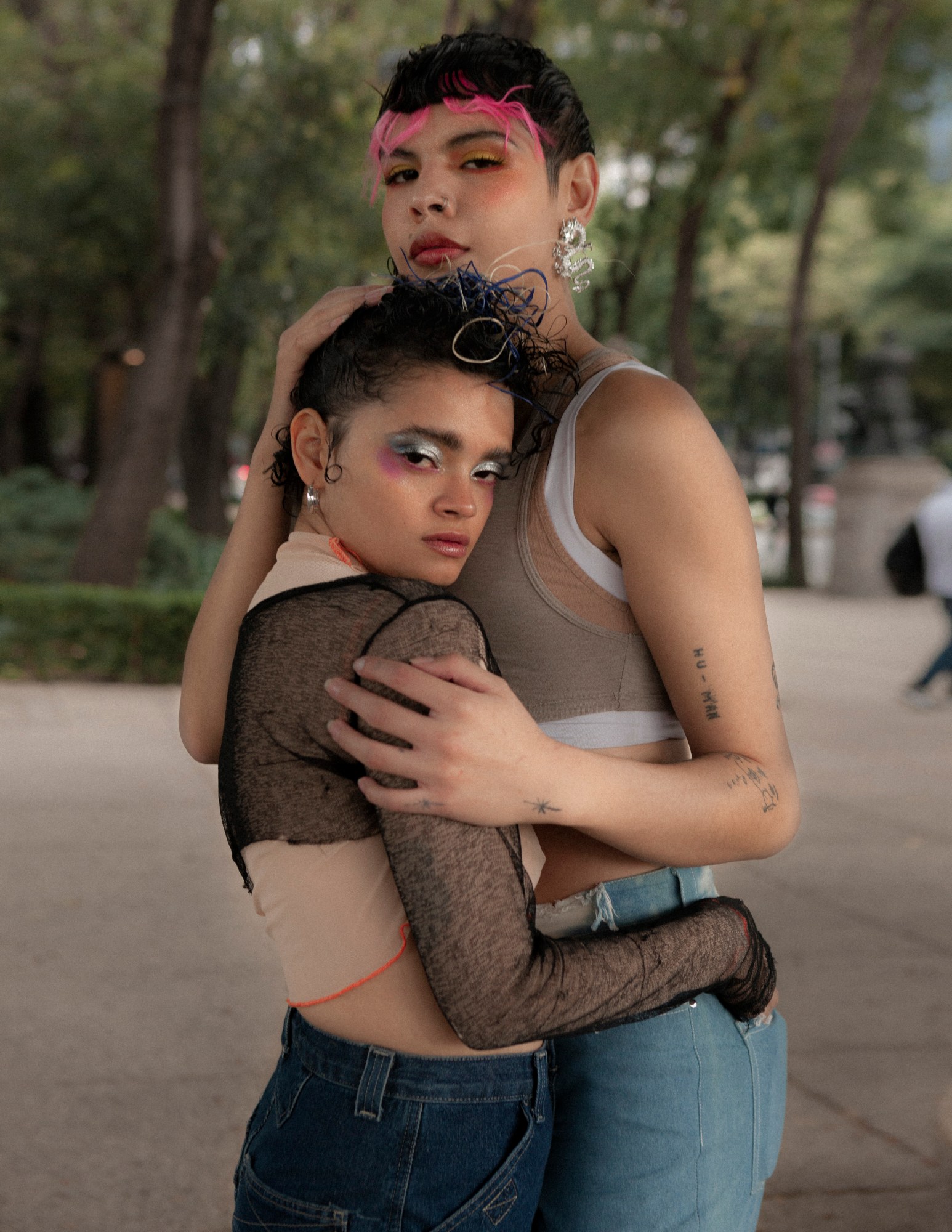
“My name is Nello. I’m originally from Venezuela, but now in Mexico. I consider myself a dancer, but also am a lover of graphic design and appreciate opportunities to express myself through acting and modelling.
What has changed for you since moving from Venezuela to Mexico City?I’ve been here for almost 3 years and the change has been huge. Mexico has transformed me into a more conscious person, more empathetic to my surroundings.
How would you describe the scene in Mexico City?
It’s lots of freedom, bravery and strength.
What has changed for you having a chosen family like the one you have now?
Being a migrant in the city, I’m very lucky to have the family I have grown here. Connecting with people that are going through the same situation as yours, makes you feel safe in a way you can’t with your biological family. [It] means a lot for me to feel that I’m not alone and that everything will be ok.
What’s your constant struggle?
Right now it’s work. I’m very focused on acting, and I understand that rejection is part of it. My profile is not widely accepted because I don’t fit in with the old beauty standards. It’s a constant struggle, but I understand how important it is to be part of change, and how one can influence other people in a positive way. It’s important to represent how different and diverse we can be, from one human being to another.
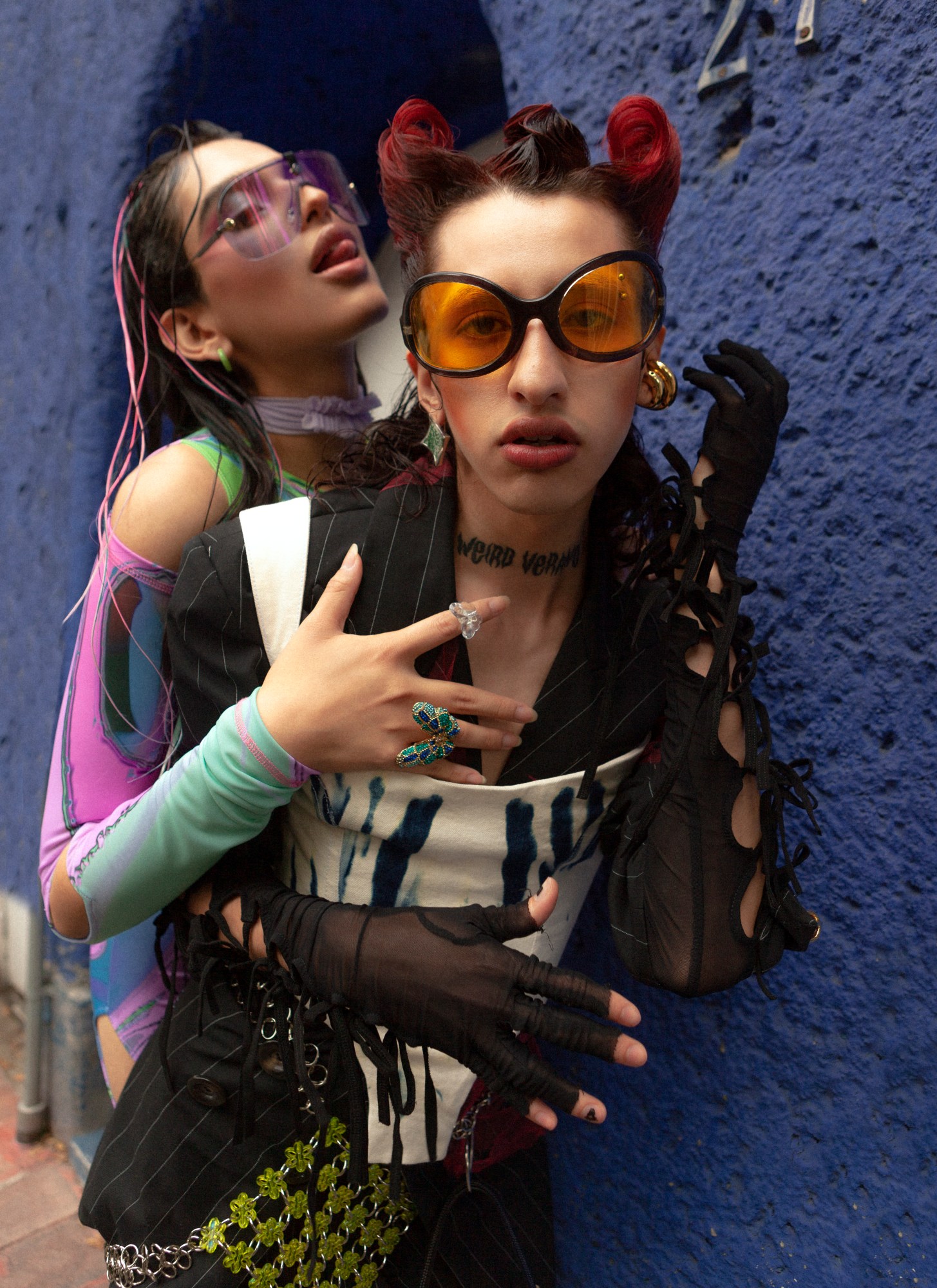
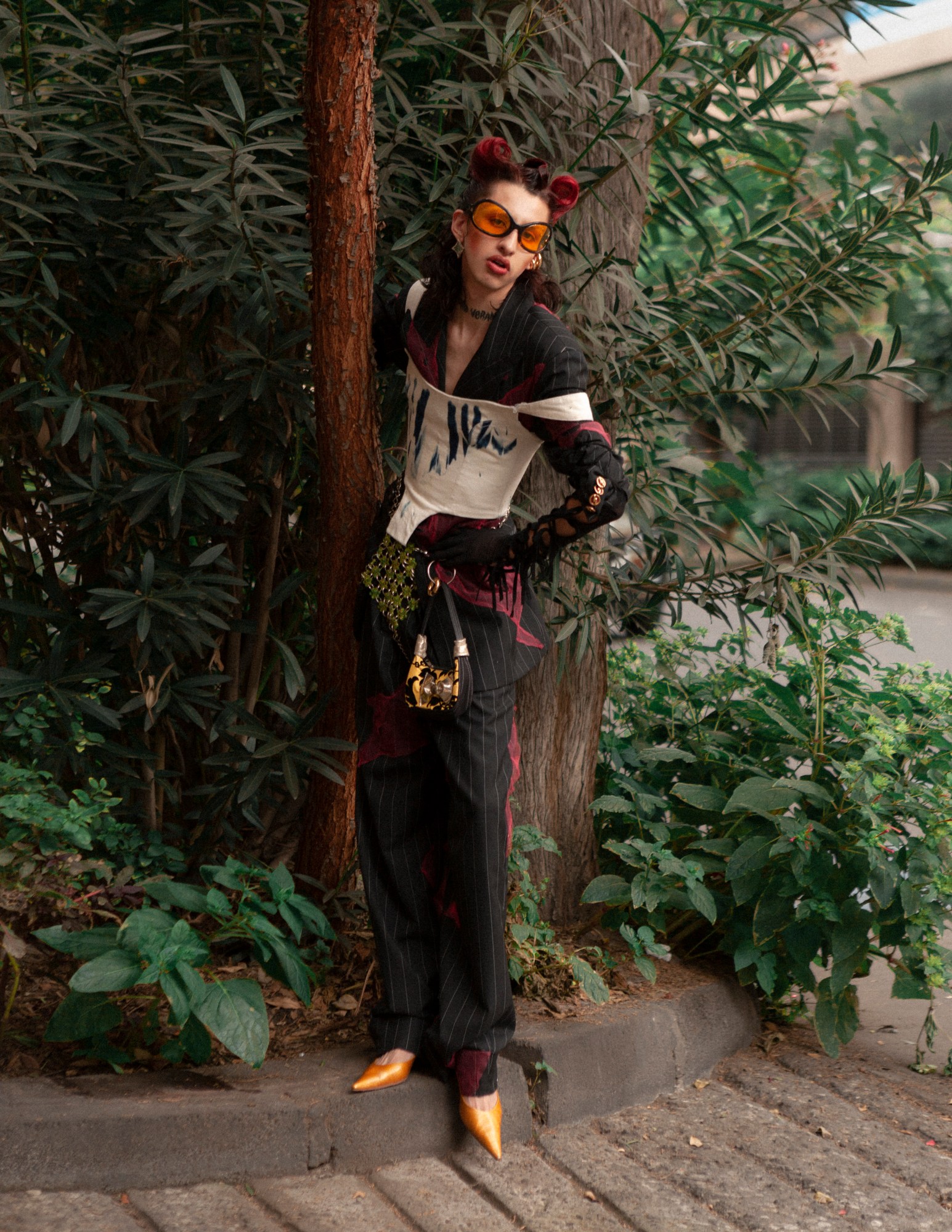
“My name is Angel, and I’m a 24-year-old non-binary pop star from the future. I grew up just outside of Mexico City and now live here. I went to college for graphic design and now consider myself an amateur artist. Trying to explain who I am is difficult, as all aspects of who I am become undefinable. As a queer person who has had to live a double life for so long, the journey of personal acceptance and existing in my environment in silence and secrecy has been an uphill battle. Now I enjoy a life of unabashed acceptance despite any consequences that may come.”
What has changed for you since your move to Mexico City?
I’m from Estado de México, outside the city, so it has made it easier to connect with people like me — it has made me open myself to them. It’s not that there are not LGBTQ+ people outside Mexico City, but here there are more physical spaces and in certain areas, more cultural currency.
Describe Mexico City for someone who’s never been here before…
It’s true that there’s a lot of things to do in Mexico City, but only if you have time and money. It really depends on what part of the city you are talking about: I live in the north and I could say it’s not so different from where I used to live, with deficiencies in public services and safety.
What has your experience been like here?
[It] has been and it is still difficult. There are areas where I feel safer than others, and I’m thankful for the spaces that have received me with kindness, but not all Mexico City is the same. Sometimes it’s very stressful and you could live with constant fear.
For people looking for support, what kind of resources would you suggest?For me, social media has been the main channel to know people. My chosen family has widened my vision of myself and things in general, I’m not drowned with my own thoughts and I feel supported to keep discovering who I am and what I want to be.

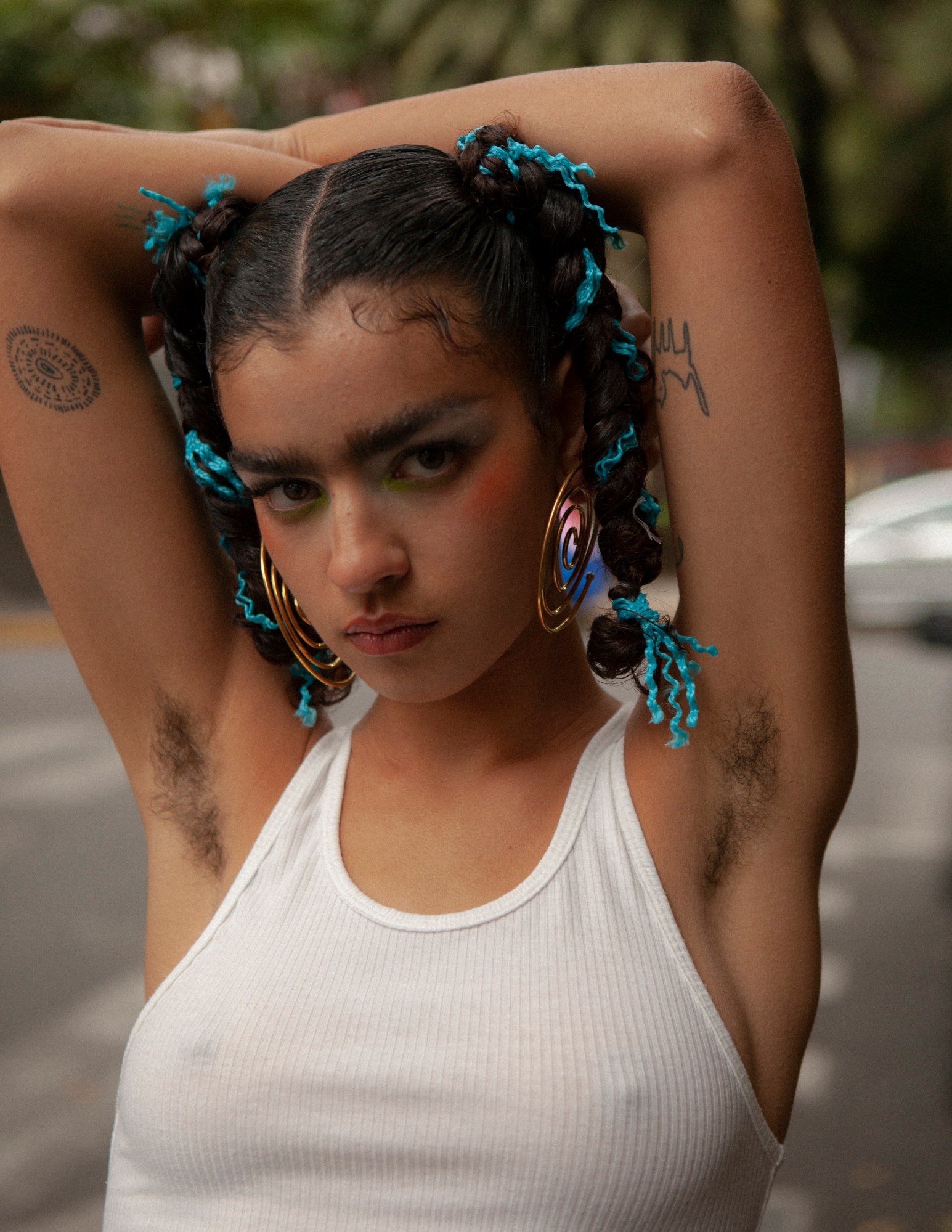
“I’m Maria Gonzalez Rojas, I was born and continue to live in Mexico City. The city is a magical place to experience and stroll around. Currently, I’m working on my degree in textile design which helps me satisfy much of my personal and creative curiosities — I love animals, and my one true passion is sewing, including all its materials and endless possibilities of construction.”
What kind of projects have you been working on this year?
I worked on personal projects such as knitting — by hand and using a machine. The pandemic changed my life in many ways and one was that it made me value knitting and everything I could learn and do on my own. That defines me as a person right now and it is also what I want to continue doing and keep learning in the future.
What has changed for you having a chosen family like the one you have now?
I know I’m understood and taken care of, and at the same time, I understand my friends: knowing they are ok, and they will be even better, that’s love.
What would you like to change in the city?
I would like to break the establishment in terms of culture and perceptions. Like most people, I’m looking for the right balance between my work, my studies, my hobbies and being okay with my body, healthy eating and sleeping habits.
What did you do this year that you wouldn’t do in 2022?
Work for free. My wish for 2022 is a lot of paying jobs.
Follow i-D on Instagram and TikTok for more creatives.
Credits
Photography Alejandro Cabezut.
Styling Nayeli de Alba.
Makeup Adrian Gonzalez
Hair Isra Quiroz
Casting Maria Osado @ Guerxs
Video / Photo Assistant Javier SG
Video Editor JP Blair
Styling Assistant Lupe Triana
